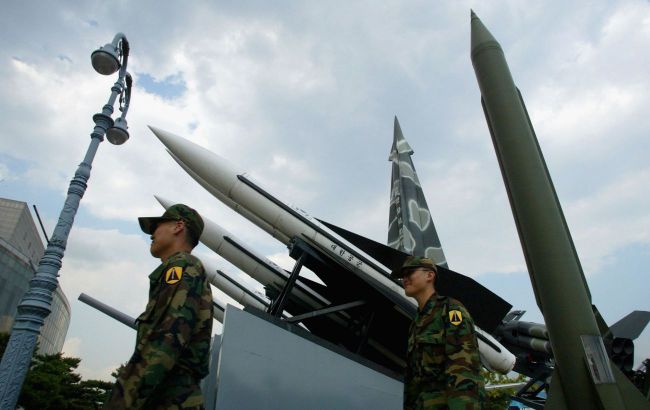South Korean military simulates Seoul defense in preparation for North Korean threat
 Illustrative photo (Photo: Getty Images)
Illustrative photo (Photo: Getty Images)
Over 1,000 South Korean military, police, and emergency workers participated in rare defense drills simulating a North Korean attack on Seoul on Wednesday, reports Reuters.
Seoul is within reach of North Korea's weaponry, prompting South Korea to dispel fears of a potential surprise attack by the enemy.
"The exercise comes amid heightened tension after the North tested an intercontinental ballistic missile and launched its first military spy satellite," the report reads.
Seoul relies on Israel's experience
Seoul Mayor Oh Se-hoon states that Israel's advanced defense system being unprepared for a sudden attack by Hamas was a significant lesson for them.
He mentions that the militant group's attack on Israeli cities on October 7, resulting in the deaths of over 1,200 people, revealed that military capabilities might not matter much if the opponent executes a successful sudden attack.
The essence of the exercises
During Wednesday's exercises, simulated assaults on a major water facility, a telephone network station, and an underground communication corridor and power cable were modeled.
The mayor has highlighted that Seoul being only 38 km from the military border with North Korea makes it exceptionally vulnerable to attacks at any time. Seoul houses 9.4 million people, with an additional 1.4 million working or attending school every day.
Seoul's mayor expresses a desire for South Korea to possess nuclear arms
Reuters reports that the Mayor of Seoul took a tough stance on North Korea, stating that South Korea must possess its own nuclear weapons as the sole way to neutralize the threat from Pyongyang. However, the President of South Korea, Yoon Suk Yeol, dismissed owning nuclear weapons, prioritizing instead the strengthening of the military alliance with the United States and the restoration of security ties with Japan.
Launch of North Korean ballistic missiles
Recently, it became known that North Korea allegedly conducted the launch of a short-range ballistic missile towards the East Sea. However, Pyongyang conducted another missile test just a few hours later. Hence, Japan's Prime Minister Fumio Kishida called for a meeting of the National Security Council.
Against the backdrop of this series of missile tests, the United States and South Korea are working on a comprehensive strategy for nuclear defense. This strategy aims to establish an integrated deterrence system against North Korea's nuclear weapons by the middle of next year. Specifically, they aim to finalize the development of a comprehensive set of instructions by 2024 on jointly deterring and responding to North Korea's nuclear threat.

